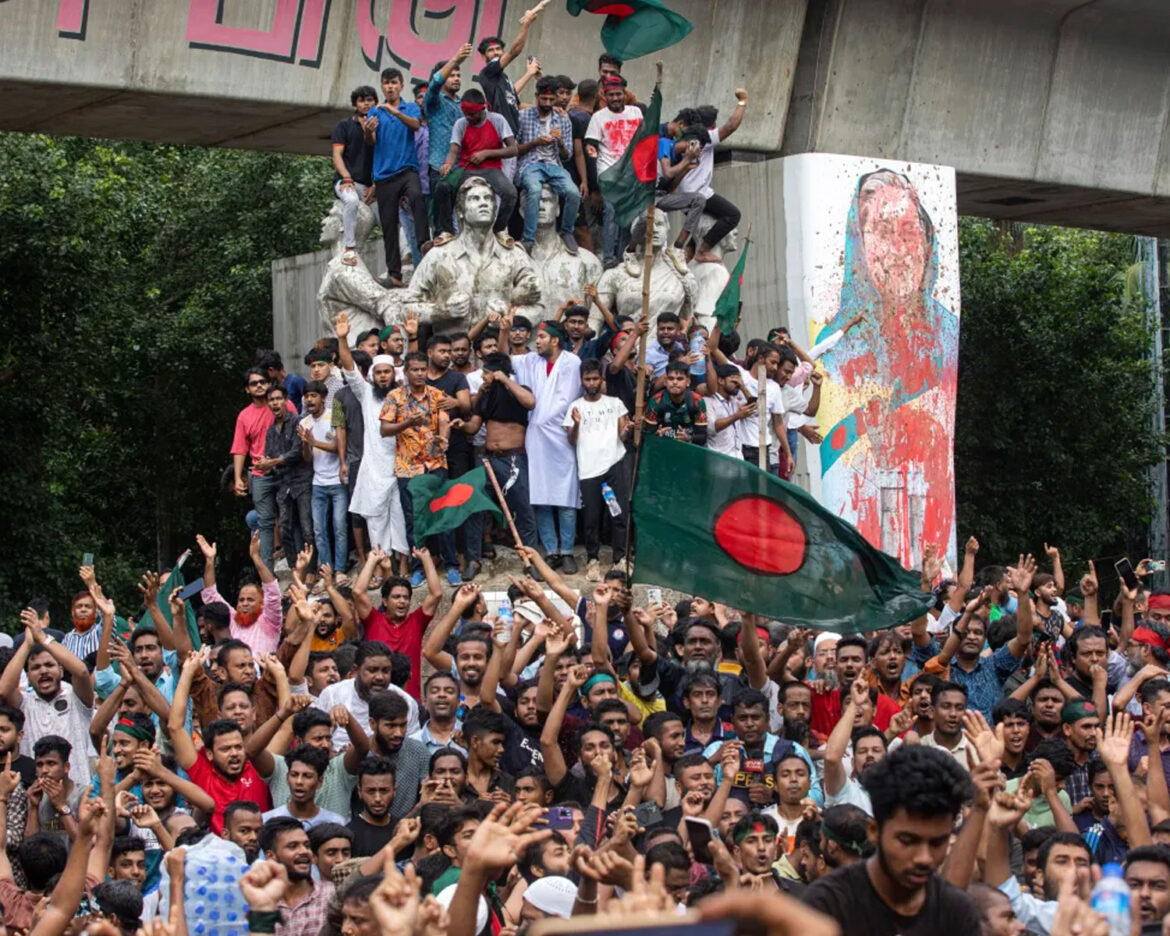In a historic turn of events, Nobel Laureate Muhammad Yunus declared, “We are liberated. We are a free country now,” following the resignation of Sheikh Hasina as Bangladesh’s prime minister. Dr. Yunus extended his gratitude to the young people of Bangladesh, who played a pivotal role in toppling Hasina’s autocratic one-party regime.
The Catalyst for Change
The protests, which began weeks ago, were ignited by a court order that reinstated a quota system scrapped by Hasina’s government in 2018. Although the Supreme Court suspended the order after a government appeal, the violent police crackdown that followed set off a chain of events leading to Hasina’s resignation and exile.
Context and Background
Bangladesh had been simmering with discontent for months due to high youth unemployment and economic stagnation exacerbated by the COVID-19 pandemic. Reports indicate that “at least 41 percent of youth between the ages of fifteen and twenty-four are not in school, employed, or engaged in job training.” Hasina’s recent electoral victory in January, her fourth consecutive term, was marred by allegations of unfair practices and mass arrests of opposition workers, further undermining her legitimacy.
The Tipping Point
The violent crackdown that resulted in over 100 deaths just hours before Hasina’s departure significantly eroded her support. A statement from retired army officers, read by a former army chief, signaled the end of Hasina’s regime. Within hours, she fled to India.
The Role of the Youth
Young Bangladeshis, particularly Gen-Z students, were at the forefront of the movement against Hasina’s authoritarian rule. Often labeled as apathetic by older generations, they used the internet to organize and disseminate their message in a media landscape dominated by the regime. Despite an 11-day internet blackout and a shoot-at-sight curfew, the youth persevered. A viral video of an unarmed protester, Abu Sayed, being shot by police, further galvanized the movement.
Hasina’s attempts to discredit the protesters by labeling them as traitors were ineffective. The tech-savvy youth continued to outmaneuver the government, culminating in a final weekend of protests that saw widespread participation from various societal sectors, including retired military officers and elites. Their sustained efforts led to Hasina’s resignation and exile.
Regional Implications
The success of Bangladesh’s Gen-Z in ousting an authoritarian ruler has significant implications. It demonstrates that younger generations are not only politically engaged and tech-savvy but also possess the resilience to challenge oppressive regimes. This development is likely to alarm status quo actors in South Asia and beyond, prompting efforts to control decentralized media and internet use.
The Path Forward
The Bangladesh army has announced the formation of an interim government, with student protesters set to present their proposals for its composition. The youth have emphasized the importance of civilian supremacy, with the coordinator of the Students Against Discrimination movement stating, “if the army chief declares a state of emergency and forms a government, we will not accept that either.”
Despite reports of ongoing violence, looting, and targeted attacks against non-Muslims, there is hope for a democratic transition. For sustainable change, Bangladesh’s youth must remain actively engaged in politics to prevent a reversion to the status quo. Historical precedents, such as the failed uprisings in Egypt, serve as cautionary tales. To ensure lasting change, Bangladesh’s Gen-Z must continue to exert pressure and articulate a vision rooted in rule of law, equality, and democracy.



